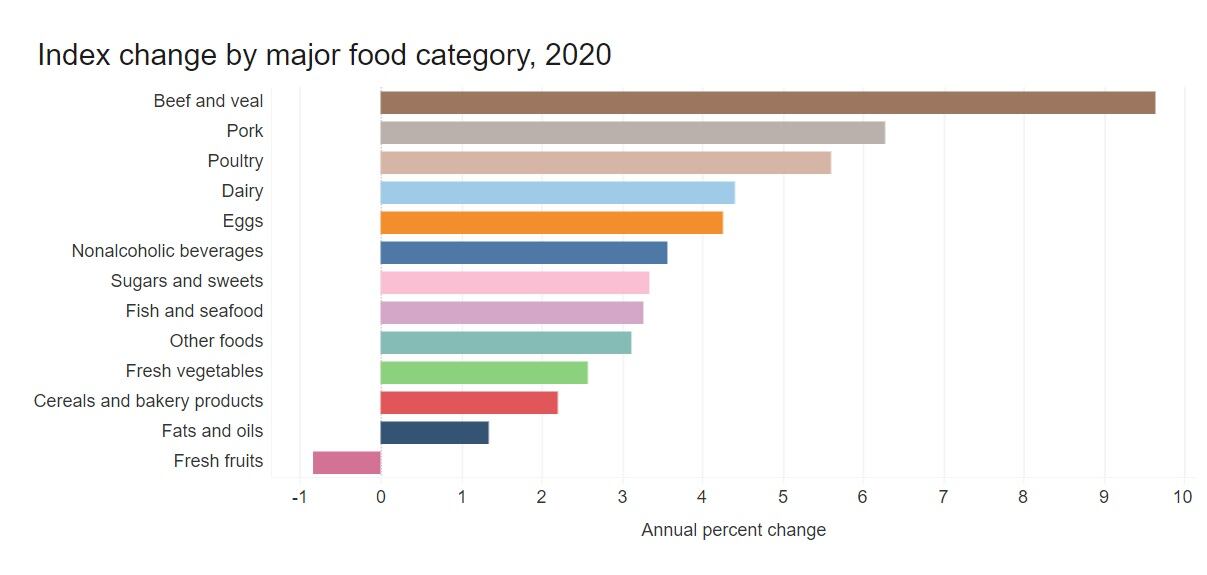Albertsons reported earnings of 79 cents a share on sales of $16.7 billion for the quarter ended in December, beating expectations of 59 cents on $16.1 billion in sales, thanks in part to consumers flocking to its stores to receive the roughly 3 million doses of the COVID-19 vaccine that it administered in the period or to buy at-home tests for the virus.
“We’ve dispensed 11 million vaccines to date, probably one of the highest on per store basis from a pharmacy standpoint, 3 million in the quarter, and that definitely contributes to ID sales and gross profit,” CEO Vivek Sankaran said.
Same store sales for the quarter ending Dec. 4 were 5.2% year-over-year and 17.5% on a two-year stacked basis – results that pushed the retailer to boost its expectation for same-store sales for the year to the range of negative 0.8% to negative 1.2%. Previous expectation were in a range of negative 2.5% to negative 3.5%, according to the company.
CFO Sharon McCollam said she expects the boost from vaccinations will continue and noted that the retailer is “doing everything we can to promote it.”
Explaining that the vaccination effort has been a “major initiative,” she said that it “sets us up into 2022 because we have pharmacy customers that are coming into our stores, and we are serving them in these ways … and we can measure improved engagement and higher customer lifetime value. So, participating in this program is socially the right thing to do, but it has also been very beneficial to the overall business.”
The downside
These benefits, however, were offset by other pandemic-related impacts and challenges, including higher costs due to rising inflation, ongoing supply chain challenges and higher labor costs – all of which the executive team expect will continue, and which sent its stock tumbling.
Within an hour of the executive team talking to investment analysts on Jan. 11, the company’s stock fell from $31.87 per share at opening to $28.55 per share at 10:30 ET. The price continued to go up and down before settling at $28.78 at close.
“Cost inflation is absolutely real,” and it is hitting ingredients, packaging, transportation, and labor for both suppliers and Albertsons, Sankaran said.
But, he added, Albertsons is hesitant to pass it through to consumers fully, unlike some other retailers, in order to remain competitive.
“When we think about what we are passing through, the net-net, we have passed through … less than the inflation we have incurred. And the way we do that is to make sure that we are judicious about the categories where we pass it through. We don’t pass through as much on the essential categories that customers need every day. We try to balance that out,” he explained.
And while he categorized consumers as still “strong” and willing to pay higher prices even as stimulus has run out and savings are being drawn down, he did note that unit volume growth is not increasing the same as it was as inflation goes up.
“As of now, what we are seeing [in] trends, even recently, is that we have a strong consumer. And we haven’t seen a dramatic change in their pattern of consumption. They are still engaging on fresh product, and still engaging overall in the store,” he said.
“What we don’t know is if inflation continues to go up, does that behavior change as we go through the calendar 2022? We don’t know that,” he added.
At the same time the company is navigating higher costs associated with labor in the form of overtime to compensate for staff shortages and higher wages in some markets to recruit and retain talent.
Out-of-stocks persist
Albertsons – like other retailers – also is battling ongoing supply chain challenges that hinder stores’ ability to consistently stock the same products sufficiently. But, he added, the company is handling it.
“We have sustained several months of out-of-stocks in several categories, and I think as a business, we’ve all learned to manage it. We’ve learned to make sure that the stores are still very presentable, give the consumers as much choice as we can get, and we were expecting that supply issues to get more resolved as we go into this period right now,” he said.
But, he added, “omicron has put a bit of dent on that. So, there are more supply challenges and we would expect more supply challenges over the next four to six weeks.”
That said, he stressed, “we don’t have supply issues that are constraining our business any differently than we did before. I think we’re managing it.”
Overall, the benefits outweigh the cons for Albertsons from a business perspective, prompting it to raise its earnings guidance for the year to $2.90 a share to $2.95 a share – up from previous estimates of $2.50 to $2.60.




